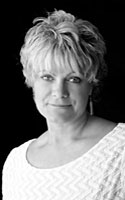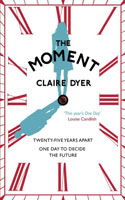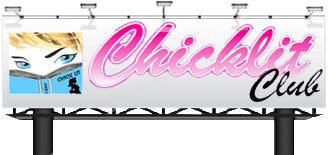INTERVIEW
November 2013

CLAIRE DYER
Claire Dyer is a poet whose first novel The Moment was published recently. She lives near Reading, England. (Interview by Jade Craddock)
Return to interview list
-

1. Tell us about your debut novel The Moment?
Am really happy to! The book started as just one scene: a man is running across the concourse at Paddington Station, he bumps into a girl holding a tray of yoghurts. She drops the tray and a woman looks up at the noise and sees the man she used to love standing under the departure boards. I had the idea that the ensuing chapter could be an entry in a first chapter competition, but basically woke up some months later to find I had written a novel! The novel is about the thin line between what is and what could be and whether it’s ever a good idea to go back and revisit past relationships. In talking to people about the idea for the novel, I’ve been told many stories of other people’s ‘what if’ moments and this is why I hope that the book will have a broad appeal because most, if not all, of us have had that moment when we’ve been faced with a choice to do or not do something which, in retrospect, has changed our lives.
-
2. Before writing The Moment, you wrote poetry. What made you decide to write a novel, and how did you find the transition?
I have been writing poetry and novels for quite a while and still write poetry (I am currently doing an MA in Poetry at Royal Holloway, University of London) and am continuing to read my poetry at venues around the UK. It could actually be said that poems are almost small novels in themselves! I’m really interested in how the techniques used in poetry transition into novels and vice versa (myself and fellow novelist and poet, Kate Rhodes, are running a workshop on this topic next year), and secondly, I’m fascinated by stories. The characters in my poems and novels become like friends to me and it is wonderful to be given the chance to give them a voice so they can tell their own stories, and a stage on which they can act them out.
-
3. Where did you get the inspiration for the novel?
All sorts of places: Paddington Station, Wales, the pottery course I went on, etc., but see the answer to question 17 for a fuller answer!
-
4. The plot is nuanced and intricate, was the book challenging to write?
No, I guess I was lucky. It sort of flowed. I was conscious of the need to pace it so that the flashbacks (both near and distant) don’t swamp the current action or that I lose sight of the passing of time from the moment Fern and Elliott meet in the morning until the evening of that same day. So I guess, keeping track of the timeline was the trickiest thing!
-
5. The book is limited to a single day, although with memories and flashbacks, why did you choose to use this limited timeframe?
I know it probably sounds corny, but it kind of chose itself! I wanted to book-end the day for both of them so that they would have a definite frame of reference within which to remember and decide what they should do next. For me, it added to the drama of their respective journeys; Fern’s to a forgiveness she hadn’t known she still need to give and Elliott’s to the atonement he’d always been seeking.
-
6. I liked all of the references to time throughout the novel. Do you think time is something people largely take for granted?
I think they can take it for granted, but in novels and movies the notion of time is obviously crucial. A good book or film is often predicated by the successful management of the time/tension axes: the missed meetings/the only one chance to get it right scenes/the ubiquitous rug-pulling moments, etc. etc., and I know this is something novelists work very hard at getting right!
-
7. Elliott and Fern have not seen each other for twenty-five years and have both moved on in their lives, although their story remains without closure. Did you feel that for Fern and Elliott their meeting again was a blessing or a curse?
I think it started out as a blessing for Elliott and the reverse for Fern, but both change over the course of the day. I think by the end of the day Elliott is perhaps wishing he hadn’t started the looking back process and Fern is surprised by the fact that she still needs to forgive him for what he did. They start out from different points, but what I try to show is how, at eight o’clock that evening, they’ve both actually reached the same destination.
-
8. What do you hope readers take from Fern and Elliott’s story?
On the one hand I am quite keen for the novel to unsettle the reader, for it to inspire them to look back at the ‘what if’ moments that have shaped their lives, but I also hope that with this looking back there is some sort of reconciliation between what is and what could be. After all, none of us can live more than one life, so it’s best to be happy in the one we have!
-
9. You offer three alternative endings, before settling on one, did you ever consider leaving the novel open-ended?
Yes I did and in the first draft it was! And whereas I hope my answer here isn’t a plot spoiler, there were some people I just couldn’t leave unborn and so that’s why I chose the ending I did.
-
10. Your book has been compared to One Day, how did you feel about this comparison?
I am hugely honoured and flattered. I think One Day is an awesome book. Mine is different because One Day focuses on the same day each year over the course of twenty years, but what I especially love about it is how it chronicles each intervening eleven months and 364 days of Emma and Dexter’s lives without ever getting bogged down. I think David Nicholls is a brilliant writer and I loved the film of the book too!
-
11. How would you describe your writing style?
Lyrical and filmic: I guess it’s because I am lyrical poet and, when I’m writing fiction, I visualise myself in the scene, all its textures and colours and smells, and move the action across the screen of the scene as in a film, or at least this is what I try to do! I also always have a soundtrack in my head which helps!
-
12. Which writers have inspired you to write?
Crikey! Loads! I love Virginia Woolf, Jane Austen, Thomas Hardy, Harper Lee, Ernest Hemingway, F Scott Fitzgerald, Carol Shields, Patrick Gale, Maggie O’Farrell … the list is endless, and that’s just the novelists. There are very many poets who have inspired me too! I’ve been in a book group since 2005 and, not counting my private reading, we’ve read over 100 books! I also did an MA in Victorian Literature recently so was able to study novelists such as Dickens and Wilkie Collins in quite some depth; they too are masters of the craft!
-
13. As a debut novelist yourself, what do you think is the biggest challenge new authors face today and what advice do you have?
I think the social media side is a challenge. Getting your name out there takes time and effort; writing may be a solitary occupation but the networking side of things certainly isn’t and what is wonderful is how much support and encouragement there is from people like yourselves, readers, fellow authors and the publishing industry. My advice therefore would be to make as many friends as possible and be supportive of other writers.
-
14. What do you think of the state of women’s fiction today?
I think it’s great! There is so much variety and some risk taking which is refreshing! There is nothing I like more than overhearing people talking about books on trains or at parties!
-
15. What do you hope your book will bring to the market?
Well firstly, I hope that readers will like the book and secondly that it will resonate with their own lives. A friend told me once that he stood on a path at his university hall of residence looking at two blocks of flats. In one was a girl he liked. In another was another girl he liked. The path divided in front of the block and he had to decide which route to take. If my book has helped him reconcile himself to the decision he eventually made it will make me happy.
-
16. I understand you’ve written your second book, have you been experiencing any second-novel syndrome?
Thankfully no! I have managed to finish the second book, which is due out from Quercus in March 2014. It’s called The Perfect Affair. It isn’t a sequel to The Moment and has a different cast of characters. I had great fun writing it because some of it is set in the 1950s-1960s and I really enjoyed researching the period. I’m currently half way through another novel and am relishing my new characters and how their particular stories are working out!
-
17. And finally, your book is all about how the outcome of lives are determined by actions in brief moments. What has been the most defining moment of your life, or to borrow from the book’s tagline “Do you remember the moment your life changed for ever?”
Yes I do and this is where some of the inspiration for the novel came from! I met the man who was to be my husband at a party which neither of us had really planned on being at. We married a year to the day later and twenty-five years have passed for us too. We have two amazing sons, three cats and at the last count (shockingly!) around sixty-three seats in our house and garden. Therefore I too sometimes wonder ‘what if’ and end up counting my blessings!
